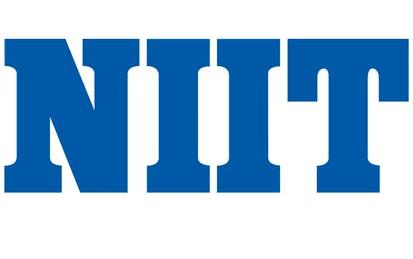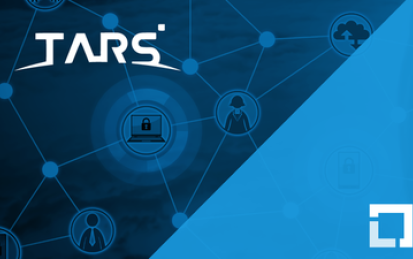

Our Courses

IBM Back-End Development
Prepare for a career in the high-growth field of software development.
-
Course by

-
 Self Paced
Self Paced
-
 English
English

Tencent Cloud Developer Associate
This course equips learners with a foundational knowledge in cloud application development and prepares them to take the Tencent Cloud Developer Associate examination. After completing this course, learners will be able to reconstruct and migrate traditional applications to the cloud and design and develop cloud native applications and distributed microservices using Tencent Cloud.
-
Course by

-
 Self Paced
Self Paced
-
 11 hours
11 hours
-
 English
English

Confluent: Developing a Streaming Microservices Application
This is a self-paced lab that takes place in the Google Cloud console. This hands-on lab provides step-by-step instructions for developers to apply the basic principles of streaming applications using the Confluent Platform.
-
Course by

-
 Self Paced
Self Paced
-
 2 hours
2 hours
-
 English
English

Microservices and Deployment by using ASP.NET
In this comprehensive course, we delve deep into the concept of microservices using ASP.NET Core, effectively dockerizing .NET Core applications, and utilizing DevOps practices. This course is divided into three core modules. The 'Microservices with .NET Core' module immerses you into the world of microservices, teaching you how to design and develop them, create RESTful APIs, and integrate these services with databases and messaging systems. The 'Dockerize .NET Core Applications' module elaborates on Docker's pivotal role in containerizing .NET Core applications.
-
Course by

-
 Self Paced
Self Paced
-
 13 hours
13 hours
-
 English
English

Installing Anthos Service Mesh on Google Kubernetes Engine
In this lab you will install the Anthos Service Mesh, and use it with the Bookinfo microservices application, all on a GKE cluster.
-
Course by

-
 Self Paced
Self Paced
-
 2 hours
2 hours
-
 English
English

Containerized Applications on AWS
This course introduces you to container technologies and how they can be used to modernize your applications, as well as exploring how different AWS services can be used to manage and orchestrate those containers. Container technologies have existed for years, and are still gaining popularity. Two of the most prevalent options are Docker and Kubernetes - each with its own distinct set of features. Regardless of which technology you choose, one of the biggest challenges with containers is their orchestration.
-
Course by

-
 Self Paced
Self Paced
-
 12 hours
12 hours
-
 English
English

Fundamentals of Software Architecture for Big Data
The course is intended for individuals looking to understand the basics of software engineering as they relate to building large software systems that leverage big data. You will be introduced to software engineering concepts necessary to build and scale large, data intensive, distributed systems.
-
Course by

-
 Self Paced
Self Paced
-
 43 hours
43 hours
-
 English
English

Orchestrating the Cloud with Kubernetes
This is a self-paced lab that takes place in the Google Cloud console. In this lab you will learn how to provision a complete Kubernetes cluster using Google Container Engine; deploy and manage Docker containers using kubectl; and break an application into microservices using Kubernetes’ Deployments and Services.
-
Course by

-
 Self Paced
Self Paced
-
 1 hour
1 hour
-
 English
English

M2M & IoT Interface Design & Protocols for Embedded Systems
This course can also be taken for academic credit as ECEA 5348, part of CU Boulder’s Master of Science in Electrical Engineering degree. M2M and IoT Interface Design and Protocols is the third of three classes in the Embedded Interface Design (EID) specialization, an online version of the on-campus EID class taught in graduate embedded systems design. This course is focused on connecting devices to each other and to the cloud to create prototypes and actual systems that flow data from devices to consumers.
-
Course by

-
 Self Paced
Self Paced
-
 9 hours
9 hours
-
 English
English

Build and Implement Microservices Patterns
Do you think an e-commerce application can be created as one large application? Imagine there is an ongoing sale, or some new features are to be added. How, according to you are the changes made visible on the application? Microservices is a cloud-based architectural approach. It contains loosely coupled, and independently deployable smaller services that are put together cohesively to develop and work on larger, and more complex applications.
-
Course by

-
 Self Paced
Self Paced
-
 12 hours
12 hours
-
 English
English

Cloud Virtualization, Containers and APIs
Welcome to the second course in the Building Cloud Computing Solutions at Scale Specialization! In this course, you will learn to design Cloud-native systems with the fundamental building blocks of Cloud computing. These building blocks include virtual machines and containers. You will also learn how to build effective Microservices using technologies like Flask and Kubernetes. Finally, you will analyze successful patterns in Operations including: Effective alerts, load testing and Kaizen.
-
Course by

-
 Self Paced
Self Paced
-
 14 hours
14 hours
-
 English
English

Spring Framework
This Specialization explains high level patterns used in Microservice architectures and the motivation to move towards these architectures and away from monolithic development of applications. Students will learn how Java interacts with databases in a modern framework, using the very popular Spring Boot Framework, with Microservices. Students wishing to develop Java based Web Applications and Restful Micro Services will be using the very popular Spring MVC and Spring Boot frameworks with minimal configuration.
-
Course by

-
 Self Paced
Self Paced
-
 English
English

IBM Applied DevOps Engineering
Gain the in-demand skills to advance from programming to DevOps engineering. In this program, you’ll learn the latest DevOps practices, tools, and technologies from experts at IBM to get job-ready in less than 3 months. Almost every company is looking to become more Agile and shorten software development cycles, creating a high demand for DevOps Engineers!
-
Course by

-
 Self Paced
Self Paced
-
 English
English

Introduction to Istio
Service meshes are becoming a vital component of a company’s infrastructure. This course teaches you how to monitor, connect, and secure microservices using Istio service mesh, the most widely adopted service mesh in production.
-
Course by

-
 Self Paced
Self Paced
-
 9
9
-
 English
English

RESTful Microservices Using Node.js and Express
Backend refers to the server side of development. Here, the primary focus is on how a website works. Node.js is considered efficient for the development of backend applications as it brings event-driven programming and enables development of fast and efficient web servers in JavaScript. Developers can create scalable servers by using a simplified model of event-driven programming that uses call-backs to signal completion of a task.
-
Course by

-
 Self Paced
Self Paced
-
 English
English

Developing Applications with Google Cloud
In this specialization, you learn the fundamentals of application development on Google Cloud.
-
Course by

-
 Self Paced
Self Paced
-
 English
English

IBM DevOps and Software Engineering
DevOps professionals are in high demand!
-
Course by

-
 Self Paced
Self Paced
-
 English
English
Architecting Hybrid Cloud Infrastructure with Anthos
This specialization is intended for technical engineers, architects, and administrators using Google Cloud Platform (GCP), Kubernetes, and Istio to create, integrate, or modernize solutions. You will learn modernizing, managing, and observing microservices-based applications that span multiple clusters in GCP, on-premises, or other cloud providers.
-
Course by

-
 Self Paced
Self Paced
-
 English
English

ASP.NET for Experienced Developers
Master the expertise to build modern, secure, and scalable applications using .NET technology. This comprehensive three-course specialization takes you from programming fundamentals to advanced deployment practices: C# for .NET Developers – Build a strong foundation in C# and the .NET framework, covering essential programming concepts like variables, operators, control structures, and object-oriented programming. Learn how to develop web applications using ASP.NET.
-
Course by

-
 Self Paced
Self Paced
-
 English
English

IBM Full Stack Software Developer
Prepare for a career in the high-growth field of software development. In this program, you’ll learn in-demand skills and tools for front-end, back-end, and cloud native application development to get job-ready in less than 4 months. Full stack refers to the end-to-end computer system application, including the front end and back end coding. Cloud native development refers to developing a program designed to work on cloud architecture. The flexibility and adaptability that full stack and cloud native developers provide make them highly sought after in this digital world.
-
Course by

-
 Self Paced
Self Paced
-
 English
English

Building Cloud Computing Solutions at Scale
With more companies leveraging software that runs on the Cloud, there is a growing need to find and hire individuals with the skills needed to build solutions on a variety of Cloud platforms. Employers agree: Cloud talent is hard to find.
-
Course by

-
 Self Paced
Self Paced
-
 English
English

Building Cloud Native and Multicloud
Get started with Cloud Native in this self-paced beginner friendly course! In this course, we will cover the core concepts and practices of building and running Cloud Native applications and how to run these applications in a multicloud environment.
-
Course by

-
 Self Paced
Self Paced
-
 13 hours
13 hours
-
 English
English

Back-end Application Development Capstone Project
This is the final course in the IBM Backend Development Professional Certificate. This capstone project course will give you the chance to practice the work that back-end developers do in real life when working with applications. In this course, you will assume the role of a real-life developer working to develop and deploy back-end microservices and applications. You will be tasked to develop, deploy, and integrate an application composed of several microservices, and integrating them seamlessly.
-
Course by

-
 Self Paced
Self Paced
-
 18 hours
18 hours
-
 English
English

Deploying Microservices to Kubernetes using Azure DevOps
Kubernetes is open-source, and its container orchestration benefits enable automation of various tasks such as deployment, management, and scaling of container-based applications. Presently, you can find various cloud-based applications using Kubernetes workloads. Since the Azure cloud provides ease of running Kubernetes alongside ease of scalability and management of microservices with higher availability, it is one of the foremost choices of all enterprises for DevOps transformation.
-
Course by

-
 Self Paced
Self Paced
-
 15 hours
15 hours
-
 English
English

Building Microservice Platforms with TARS
Are you interested in microservices? Don’t miss out on TARS! Get an in-depth primer on the powerful TARS framework for building your microservice platform.
-
Course by

-
 Self Paced
Self Paced
-
 English
English



